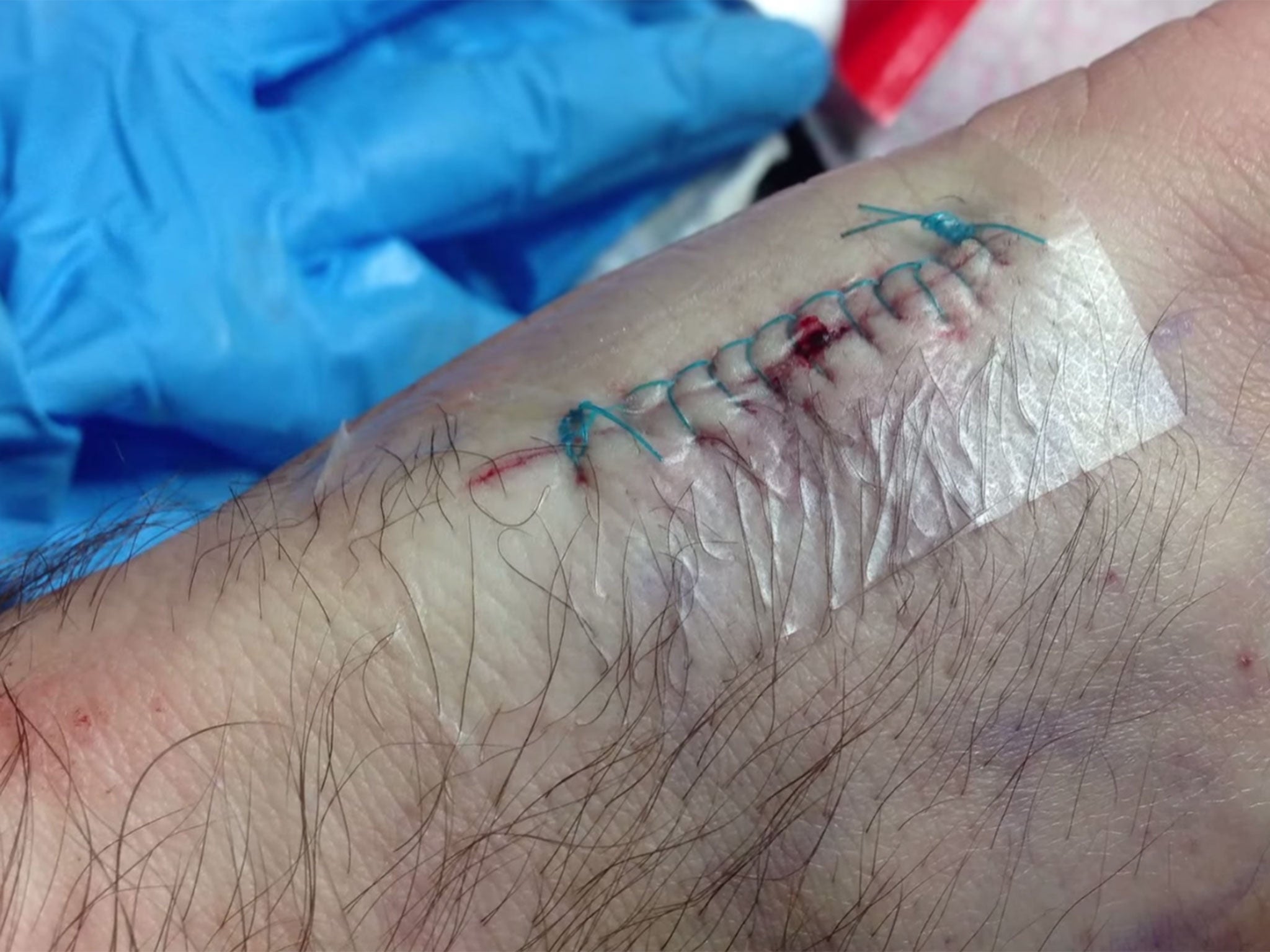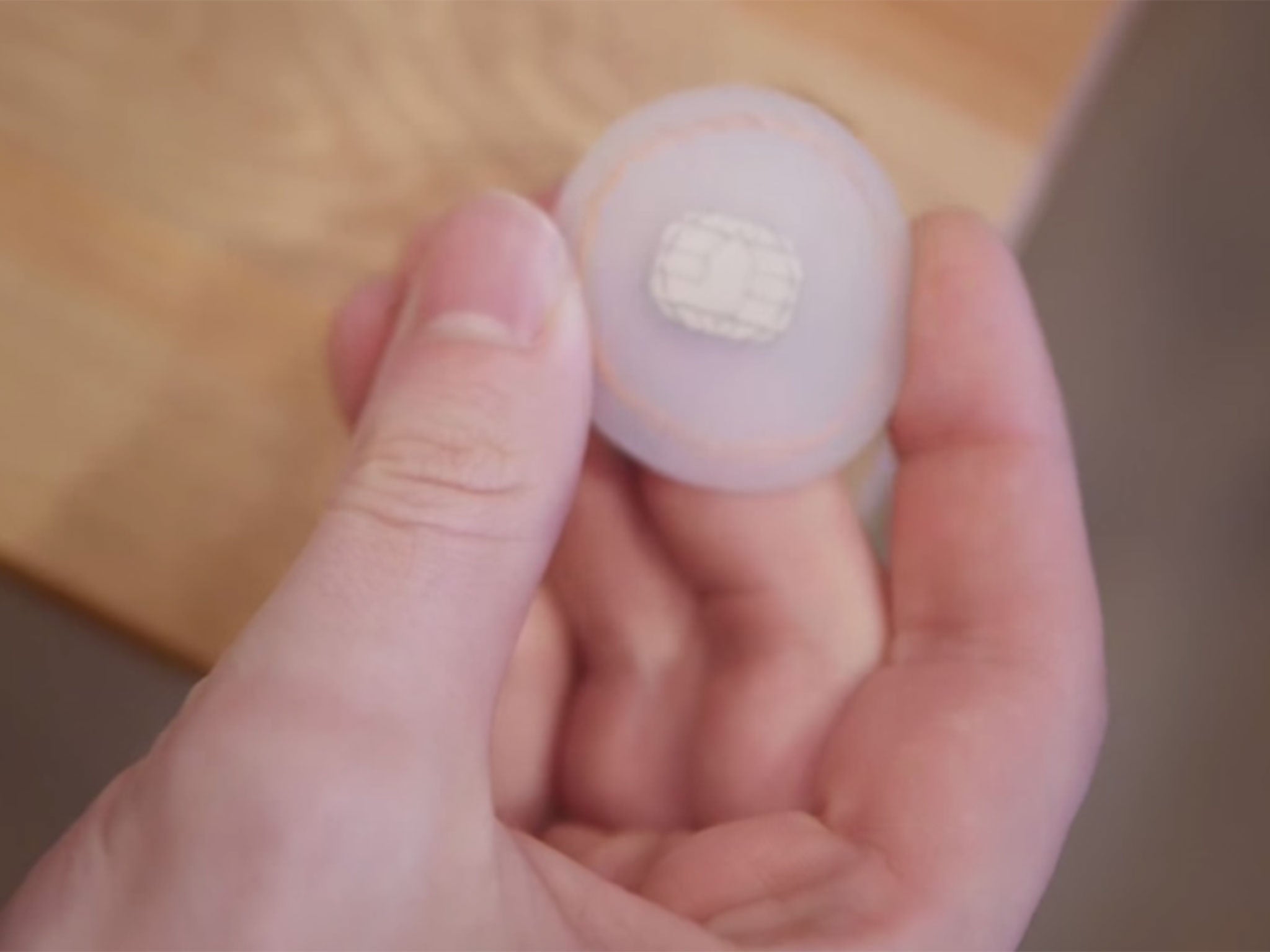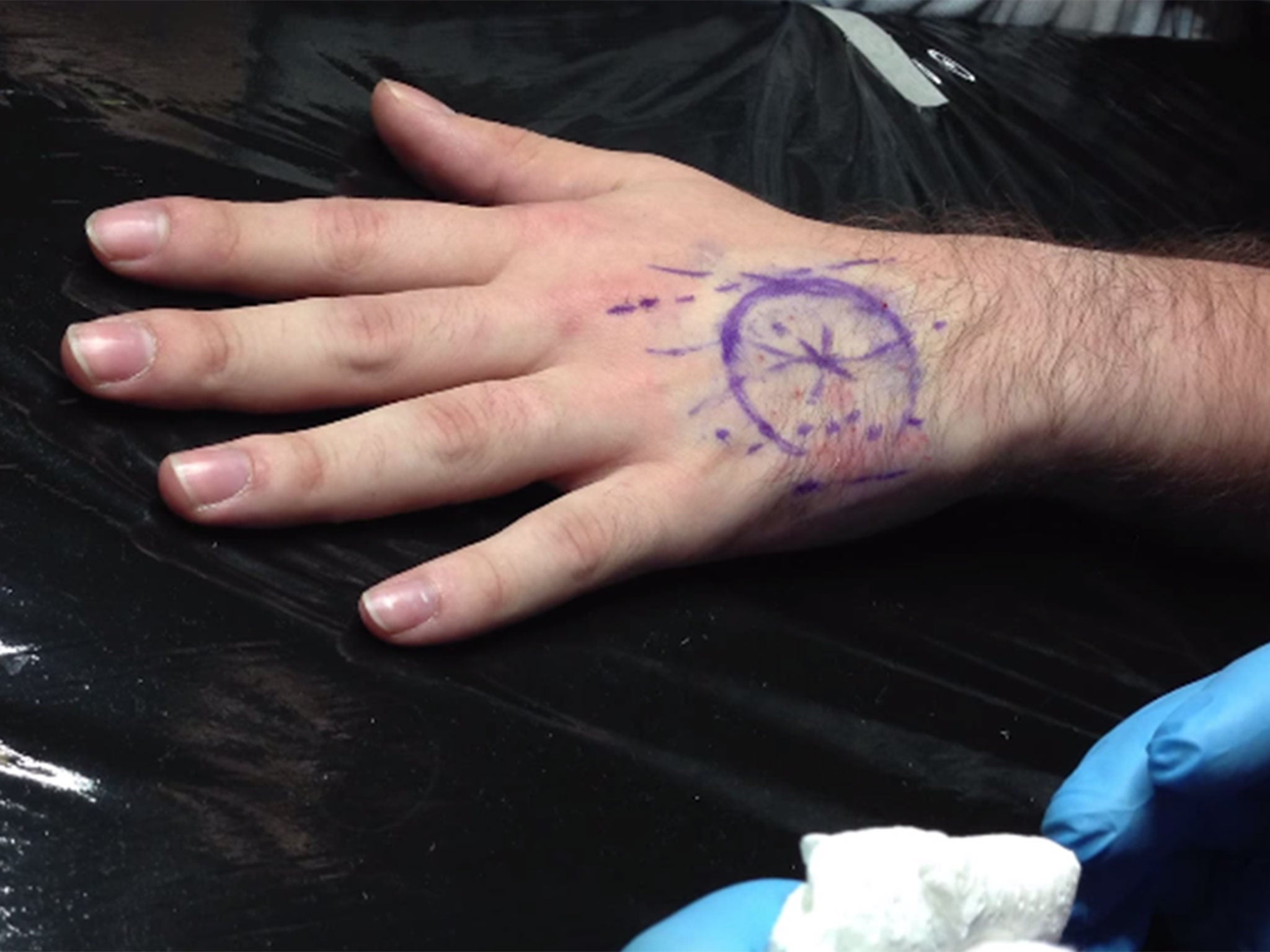Russian engineer implants travel card chip into his hand to speed up commute
He now wants to insert a credit card chip into his other hand

Your support helps us to tell the story
From reproductive rights to climate change to Big Tech, The Independent is on the ground when the story is developing. Whether it's investigating the financials of Elon Musk's pro-Trump PAC or producing our latest documentary, 'The A Word', which shines a light on the American women fighting for reproductive rights, we know how important it is to parse out the facts from the messaging.
At such a critical moment in US history, we need reporters on the ground. Your donation allows us to keep sending journalists to speak to both sides of the story.
The Independent is trusted by Americans across the entire political spectrum. And unlike many other quality news outlets, we choose not to lock Americans out of our reporting and analysis with paywalls. We believe quality journalism should be available to everyone, paid for by those who can afford it.
Your support makes all the difference.We can all appreciate how important those extra minutes in bed in the morning are, but one man is so committed to speeding up his commute that he has inserted his travel card under his skin.
Russian engineer Vlad Zaitsev has implanted NFC chips from both his travel card and his office swipe card into his hand.
To extract the chips, Zaitsev dissolved the cards in acetone. He then covered the resulting metal pieces into silicon, making it safe to insert the technology into the side of his hand.
A gory video of the procedure shows the silicon disk being placed into a deep opening in his hand, as well as his large scar when he is sewn back up.




Zaitsev now hopes to inject a chip from a credit card into his other hand, according to a Madrobots.Ru YouTube video.
"It is the perfect solution to not have to worry about losing an expensive season ticket, although I admit it’s not going to be everybody’s cup of tea," he said according to the Metro.
Warning: Video contains graphic content
Although less drastic, travellers on the London’s transport network have also found inventive ways to use their Oyster Card chips.
By snapping open their cards to retrieve the tiny piece of technology, Londoners have been known to attach chips to everything from key rings to wands.
Zaitsev's experiment comes after Tim Cannon, a self-styled biohacker in Germany, inserted an implant into his arm which records data from his body which is transferred to his Android smartphone, Vice News reported.
Join our commenting forum
Join thought-provoking conversations, follow other Independent readers and see their replies
Comments